News

|
Popular Science: Who decides on the economy? The role of the state and multinational organizations in the automotive industry in SlovakiaSlovakia has been experiencing economic growth in recent years. One of the causes is the rapid development of the automotive industry. It is not easy to say if this path is without problems. In his article Professor Petr Pavlínek from the Department of Social Geography and Regional Development and also from the University of Nebraska analysed developments in the automotive industry in Slovakia with regard to the role of the state and its industry policy in this process. Published Jul 19, 2016 |
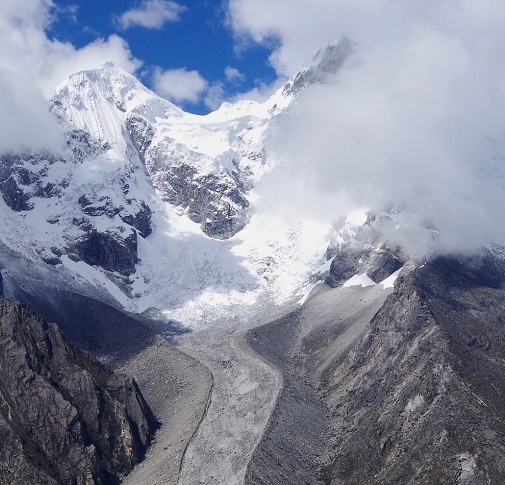
|
Popular Science: The Jatunraju Glacier – lying and waiting?Geomorphologists Adam Emmer and Vít Vilímek from the Department of Physical Geography and Geoecology have long been interested in the mountainous Cordillera Blanca area in Peru. Together with their colleagues from the Institute of Rock Structure and Mechanics and Peruvian scientists they studied recent and past changes to the Jatunraju Glacier and if these changes can affect the stability of Perón Lake, which is dammed by lateral moraines. Published Jul 12, 2016 |
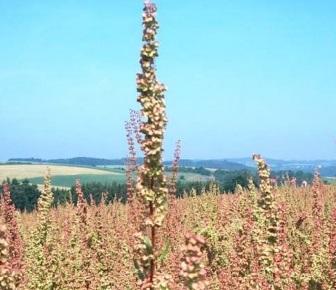
|
Popular Science: Do we know how newly introduced cultural crops are influencing the soil?Soil is an important provider of ecosystem services, among the most important of which include the possibility of food production and the mitigation of climate change effects. This is made possible through carbon sequestration and nutrient cycling, which are processes primarily driven by soil biota. However, the intensification of agricultural production caused by the growing demand for biofuels reduces the soil biota. Published Jul 11, 2016 |
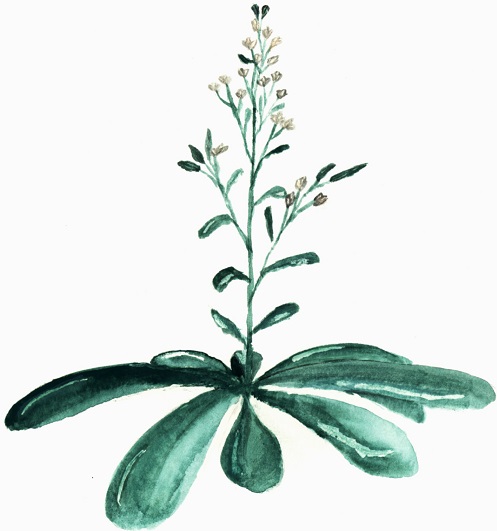
|
Worldwide important meeting of plant biologists is ongoing in PragueA remarkable meeting of plant biologists „Plant Biology Europe EPSO / FESPB Congress 2016“ with European and worldwide importance is taking place in Prague during 26-29 June, 2016. More than 900 scientists from 58 countries of the whole world participate in this event. The aim of the PBE Congress is development of discussion on current challenges of plant biology of the 21st century. Published Jun 29, 2016 |

|
Seminar of the Faculty of Science at BIOCEV – ”Cancer immunotherapy and tumor models” by RNDr. Michal Šmahel, Ph.D.Dear colleagues, we would like to draw your attention to the next seminar of the Faculty of Science at BIOCEV -Tuesday 28th of June 2016 at 3:00 p.m. in the main BIOCEV building, Průmyslová 595, Vestec, conference hall number U2.012 (2nd floor). Published Jun 24, 2016 |
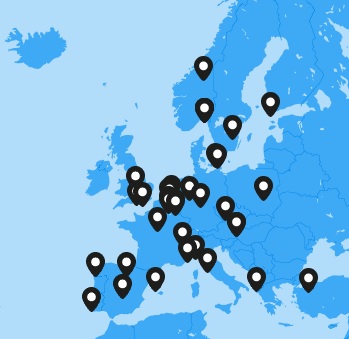
|
The 13th IMISCOE Annual Conference “Migration and Development”The international conference of the IMISCOE research network (International Migration, Integration and Social Cohesion) will take place in Prague for the first time in 2016, being hosted by the Geographic Migration Centre (GEOMIGRACE) and the Czech Geographical Society. The conference will take place on 30th June – 2nd July, 2016 on the premises of the Faculty of Science. Published Jun 13, 2016 |
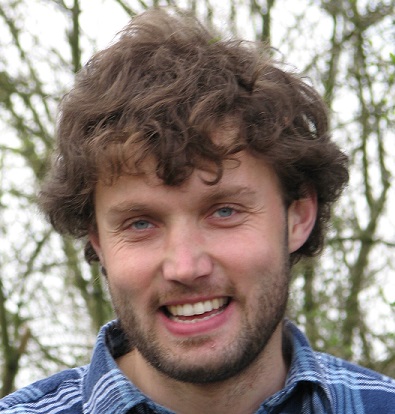
|
How do birds respond to global climate change?The global climate change affects biosphere at a speed that is remarkable in that it is basically close to ordinary human experience. The trends that reflect in atmospheric processes are also apparent in the biodiversity. Science magazine recently published the results of an extensive study based on long-term data on the abundance of common bird species. We talked with doc. Jiří Reif of the FoS Institute for Environmental Studies about the history of the (Science) article and about his role in the project. Published Jun 07, 2016 |
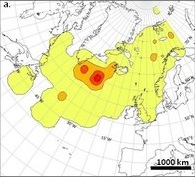
|
Popular Science: North Atlantic Oscillation: What is its influence on weather?In his recent article Radan Huth from the Department of Physical Geography and Geoecology analysed the relationship between solar activity and the North Atlantic Oscillation (NAO). Now Radan Huth, together with Lucie Pokorná, researches the climate impacts of the NAO in Europe. Published May 27, 2016 |
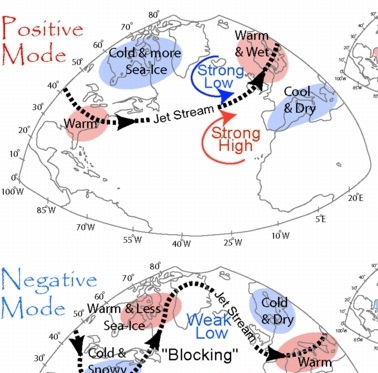
|
Popular Science: What all does solar activity cause?The Sun is the most important source of energy for the Earth. That is clear. How else does the Sun affect the Earth? Radan Huth, a Climatologist from the Department of Physical Geography and Geoecology, the Faculty of Science, Charles University in Prague, researched the influence of solar activity on North Atlantic Oscillation together with colleagues from Romania. Published May 27, 2016 |
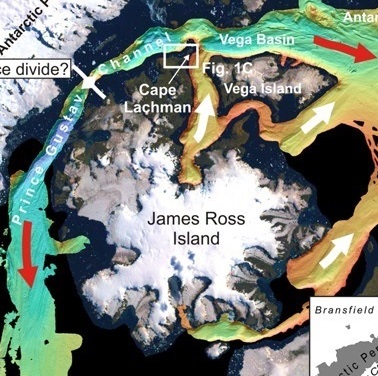
|
Popular Science: Erratic boulders – witnesses of the pastScientists from our Faculty are also working at the edge of the ice continent. Thanks to the facilities of Masaryk University’s Mendel Antarctic station on James Ross Island, Zbyněk Engel, a member of the Department of Physical Geography and Geoecology, can work there together with colleagues from the Czech Geology Survey and the University of Marseille. They dated the remains of glacier activity to clarify knowledge about the development of glaciation. Published May 27, 2016 |
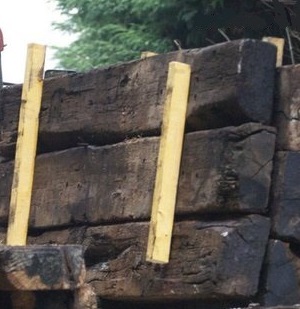
|
Popular Science: What to do with toxic wood? Let’s compost it!Toxic waste is being produced with ease in vast quantities, but it is considerably more difficult to get rid of it gracefully afterwards. Stefano Covino and his colleagues from the Institute of Environmental Studies at the Charles University and the Institute of Microbiology at the Academy of Sciences focused on a 240-days detailed survey of the composting process, which can decompose creosote-treated wood. Published May 18, 2016 |
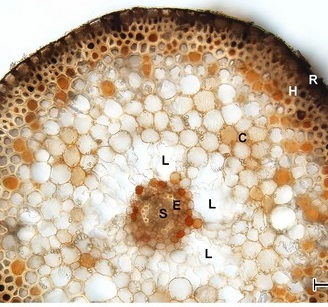
|
Popular Science: Are seagrasses capable of mycorrhiza?Seagrasses are a special group of plants which shifted back from land to below the sea surface about 100 million years ago. Although their 50-70 species constitute a mere two hundredths percent of all angiosperm flora, they colonize the entire ten percent of the coastal ocean bottom. They make up one percent of the total marine plant biomass and are responsible for fifteen percent of the total carbon storage in marine ecosystems. For comparison – in terms of carbon storage per unit area, that is twice more than forests of temperate or tropical regions. Published May 15, 2016 |
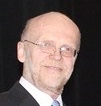
|
Professor Bohuslav Gaš Awarded Arnold O. Beckman MedalProfessor Bohuslav Gaš is known by most of us as the Dean of the Faculty of Science. Not many people know much about his career as a physical chemist, though. The Canadian town of Niagara-on-the-Lake recently saw Professor Gaš receive a prestigious award for his lifelong achievements in the field of electro-driven separation techniques (electrophoresis): a medal bearing the name of Arnold O. Beckman, one of the founders of Beckman Coulter. Published Apr 29, 2016 |
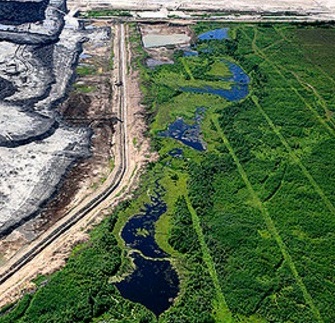
|
Popular Science: From mining landscape to natural forestA large portion of deposits of mineral and energy resources is located in the forests. Before mining, stripping the surface is necessary. But this means a loss of unique forest ecosystems. A question remains: what next? Scientists from universities in North America, Europe and Australia are working on a new approach to return the affected land to its natural state through reforestation. Published Apr 20, 2016 |
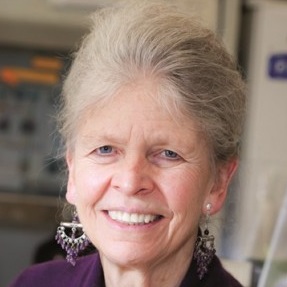
|
Lecture screening in Great Zoological Hall: Viral and Cellular Noncoding RNAs: Insight Into EvolutionJoan Elaine Argetsinger Steitz (born January 26, 1941) is Sterling Professor of Molecular Biophysics and Biochemistry at Yale University and Investigator at the Howard Hughes Medical Institute. She is known for her discoveries involving RNA, including ground-breaking insights into how ribosomes interact with messenger RNA by complementary base pairing and that introns are spliced by small nuclear ribonucleic proteins (snRNPs), which occur in eukaryotes. Screening takes place in Great Zoological Hall on Thrusday 5th of May, 5. p.m. Published Apr 20, 2016 |
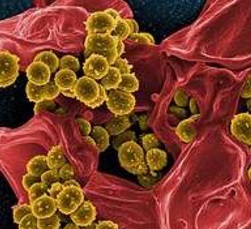
|
Summer School in Environmental History: The Undesirable - How Parasites, Diseases, and Pests Shape Our EnvironmentsThe Working Group for Czech and Slovak Environmental History in cooperation with the Faculty of Science at Charles University in Prague and the Institute for Contemporary History of the Czech Academy of Sciences and with the support of European Society for Environmental History are pleased to announce a four-day graduate summer school in environmental history which will take place in Prague in late August 2016. Application deadline is 20 May 2016. Published Mar 14, 2016 |
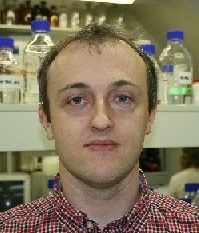
|
PhD fellowship in structural biology of 14-3-3 protein complexesThe Department of Physical and Macromolecular Chemistry, Faculty of Science, Charles University in Prague is offering a PhD scholarship at Tomas Obsil research group to start in October 1st 2016. Project is part of the Horizon2020 (H2020) Marie Skłodowska-Curie Innovative Training Network (ITN) “Targeted small-molecule Stabilization of Protein-Protein Interactions (TASPPI)”. Published Mar 09, 2016 |
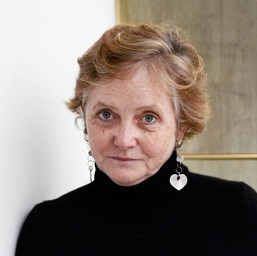
|
Lecture: Mary O'Connell - ADAR1 discriminates between self and non-self endogenous RNAsMary O'Connell has a profound record in the world’s foremost research institutes such as Albert Einstein College of Medicine, New York and MIT, Boston. She has joined the Central European Institute of Technology Masaryk University (CEITEC MU) last year via the ERA Chairs programme. Mary is going to talk about RNA editing enzymes of ADAR family and its link to innate immunity and autoimmunity. The lecture takes place on 15th March 2016 in B3 (Vinicna 7) starting at 4.30 pm. Published Mar 08, 2016 |
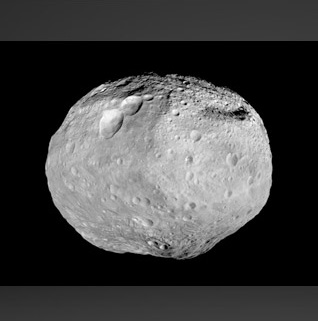
|
Space weathering: geologists' journey to spaceFor most of us, the term geological research is likely to evoke explorations aimed at reaching various depths under the Earth's surface. That, obviously, is what this work is usually about. Geologists, however, can also raise their heads towards the sky and demonstrate their competence in areas that are normally "dominated" by scientists with telescopes, and their expertise can help in research involving various space bodies, from asteroids to planets. Published Mar 02, 2016 |
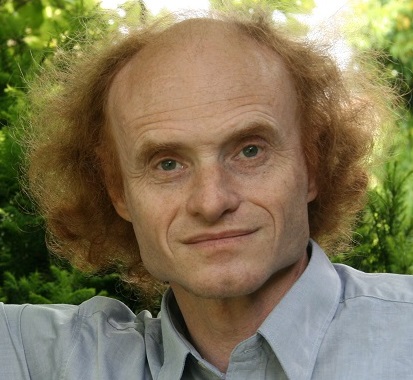
|
Czech scientists solved the enigma of coexistence of people with Rh+ and Rh- blood groupsBefore the advent of modern medicine, about 10 000 Rh positive children born to Rh negative mothers were dying for hemolytic anemia in the US each year. Without the superiority of the heterozygotes – the carriers of both variants of Rhesus gene, the less abundant allele should be quickly eliminated from any population. Jaroslav Flegr probably solved 80 years old enigma of coexistence of carriers of two variants of Rhesus gene in the same population. Published Jan 31, 2016 |